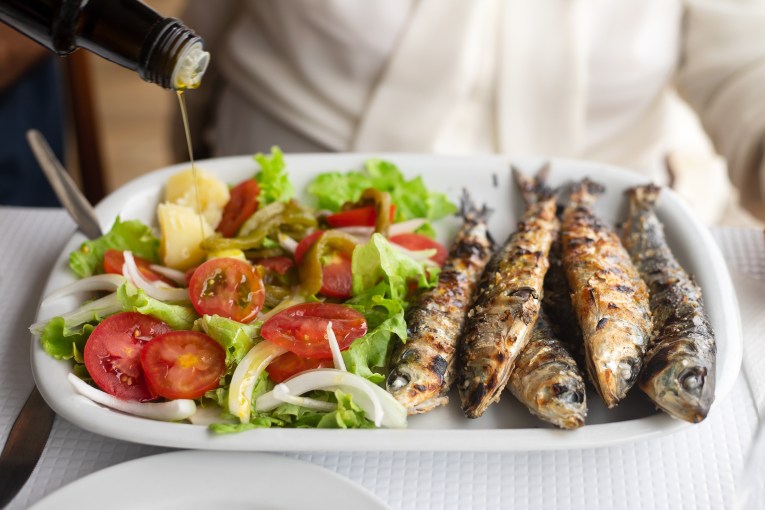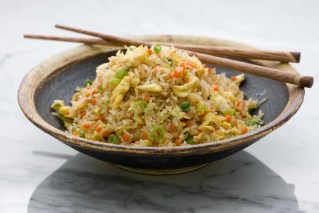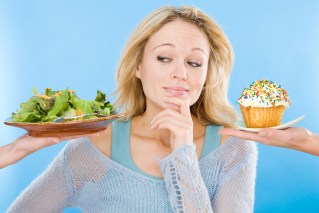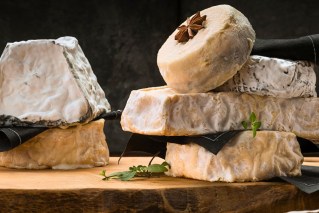Skip dinner: Our national symbol is on the menu
In 2006, Mark Pearson, executive director of Animal Liberation NSW, ventured into the outback on a tip off.
His whistleblower, a shooter from Queensland who had been earning a meagre living shooting kangaroos, took Pearson out to work to investigate animal cruelty, but he quickly realised the major concern was something else.
“As soon as I saw the chiller, with the seals broken and maggots crawling around the edge, I said to the shooter, ‘Do you mean to tell me this is where the kangaroo meat hangs?’. He said, ‘Yeah mate. It’s f****ing disgusting. I wouldn’t eat the s**t’.”
Armed with swabs from these meat chillers, Animal Liberation successfully lobbied Russia to temporarily ban Australian exports of kangaroo meat in 2009.
Kangaroo has struggled with public perception for years. Only legalised for human consumption Australia-wide in 1993, the industry has fought vigorously to improve its image. Sustained attacks from Animal Liberation and other activists continue to threaten sales at home and abroad, but seem to have had little impact on the meat’s rising popularity.
A sole producer, Macro Meats, has managed to lift the Russian ban and is putting increasing amounts of kangaroo meat onto our supermarket shelves.
The company reports that last year the demand for kangaroo saw its largest increases in Queensland (118 per cent), Western Australia (112 per cent), and New South Wales (102 per cent). Our biggest ‘roo eaters are Victorians, Tasmanians and the New South Welsh, according to Macro Meats.

Kangaroo chillers at Marla, SA. Photo: Supplied
Hygiene problems
Despite the recent rise in demand, Animal Liberation reports that supermarket samples of kangaroo meat tested between 2009 and 2012 contain dangerous levels of E. coli bacteria, salmonella and other pathogens, pointing to problems in the way wild-caught meat is handled.
Pearson says the high levels of contamination are caused by kangaroo shooters not having chillers in their vehicles. He claims that carcasses stew on the back of four-wheel drives in hot temperatures on summer nights for as long as it takes the hunter to return to the chiller. Cattle and sheep are chilled within 20 minutes of slaughter.
“The Russians did their own tests in Vladivostok and found similar results, including rotting meat, faeces and anti-biotic spray,” says Pearson, who cites this as the reason for the original Russian ban.
An independent study in 2007 confirmed that salmonella levels in kangaroo carcasses do increase in summer. But it found that less than one per cent of samples were contaminated, which is a similar level to supermarket beef. Macro Meats strongly denies there is anything wrong with its products.
“We’ve got a world-accredited laboratory, with nine scientists who work here. We’ve got chemists and microbiologists,” says founder Ray Borda. “We’ve never come up with anything near what [Animal Liberation] came up with.”
Borda says that Animal Liberation’s studies are inaccurate because they took swabs from inside kangaroo carcasses, which is the portion that is cut out and discarded.
A previous statement from the NSW Food Authority states kangaroo meat is safe if thoroughly cooked, even if there are microbes in the meat. So if you are concerned about the safety of your kanga, it seems you’re likely to get more accurate results by swabbing a cooked burger than a raw piece of roo.
Health benefits
Despite these PR problems, the Kangaroo Industry Association of Australia (KIAA) is confident that it can convince consumers to buy more ‘roo meat.
“I’m fond of saying that kangaroo meat has been the red meat of choice for Australian consumers for the past 40,000 years. It’s only the last 200 years that there’s been a hiccup in its marketing program,” says development manager of KIAA John Kelly. “I think we’re well on the way to swinging that around.”
“We believe kangaroo meat is the most animal welfare friendly protein source available because these animals are in their natural environment, left without interference by man in any way, and then dispatched instantly by a high-powered bullet to the head.”
One group of people the industry has no trouble winning over is the health conscious. A spokesperson for Woolworths says that these customers “are the most active in terms of purchasing and awareness”.
Sports dietician Lisa Middleton confirmed kangaroo is one of the healthier options for those who want something beefy.
“Kangaroo meat is rich in protein and minerals such as iron, zinc and magnesium, while also low in kilojoules, total and saturated fat, and sodium.”
The leanness of the meat is good for those who want to build muscle, its iron content can help with anaemia, and the high protein content can assist with weight loss by keeping you fuller for longer, says Middleton. But she warns that the meat should never be eaten rare or raw “for food safety concerns”.
The Heart Foundation has given its Tick of Approval to a variety of kangaroo products.
A healthy and growing appetite
Despite continued questions of ethics, the supermarkets and their customers seem unfazed.
“Popularity of kangaroo in stores has grown as people increasingly recognise its health benefits,” says a spokeswoman for Coles, which along with Woolworths sources its kangaroo from Macro Meats.
“The Gourmet Game range by Macro Meats can be found in all Woolworths supermarkets across Australia,” says a spokesman for the supermarket chain. “The range is performing well. Sales spiked around 20 per cent higher around Australia Day.”
Woolworths partly attributes the growth in popularity to “the education of consumers on how the kangaroo industry is regulated in terms of animal welfare and hygiene”.
According to the KIAA’s John Kelly, kangaroo will always be a niche market, and can grow no larger than five per cent of our domestic meat market.
But if activists like Pearson have their way, the entire industry could disappear.
“If Woolworths and Coles suddenly start to get the fear, which is part of our campaign, the EU would immediately stop imports,” he says. “So they’re on a knife’s edge.”








